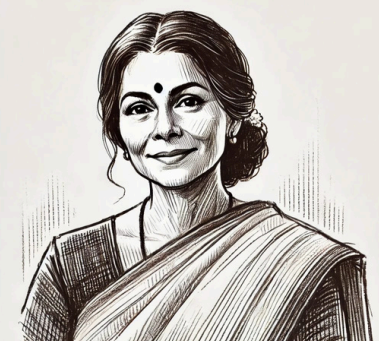
Journey of Amma Idli
The story of Amma Idli is an inspiring tale of innovation, social responsibility, and a mother’s love translated into a simple but powerful idea. Originating in Coimbatore, Tamil Nadu, Amma Idli was born from the efforts of V. Rajalakshmi, a woman who turned a humble South Indian breakfast into a life-changing movement for the underprivileged. What began as a small venture to serve hygienic and affordable food soon grew into a symbol of service, self-reliance, and dignity.
The journey started in the early 2000s, when Rajalakshmi noticed how people, especially those from economically weaker sections, struggled to get nutritious meals. She realized that food insecurity wasn’t just about hunger, but also about access to clean and safe meals. With this motivation, she began preparing soft, fluffy idlis at home with the help of her husband, and sold them at just ₹1 per piece—a price that made the meal accessible to all. The dish came to be affectionately known as “Amma Idli”, with “Amma” meaning mother in Tamil, reflecting the warmth and care in every serving.
The low-cost model was made possible by streamlining the cooking process, buying ingredients in bulk, and keeping the business non-profit driven. But what made Amma Idli unique wasn’t just its affordability. It was the heart behind it. Rajalakshmi believed that even the poorest deserved to eat with dignity, and that is why she served the idlis on clean banana leaves, accompanied by homemade chutney, maintaining hygiene and presentation standards that rivalled any restaurant.
As word spread, Amma Idli gained attention from the media and local authorities. Her initiative began receiving support in the form of donations and encouragement, allowing her to expand operations and feed more people, including daily wage workers, students, and senior citizens. The idli became more than a food item—it became a tool for community building and upliftment.
What’s more inspiring is that Rajalakshmi trained and employed other women in her kitchen, empowering them to earn and learn. Her venture slowly evolved into a women-led micro-enterprise, providing livelihood and confidence to many.
Today, Amma Idli stands as a shining example of how a simple, traditional dish can be transformed into a tool for social change. It proves that businesses need not always focus on profit; they can also focus on purpose. In a world where fast food chains dominate, Amma Idli reminds us that homegrown ideas, when driven by compassion and community, can bring about sustainable change.
In conclusion, the journey of Amma Idli is more than a business success story—it’s a story of human empathy, resilience, and empowerment. It teaches us that you don’t need a lot of money or resources to make a difference; you just need a strong will, a kind heart, and a vision. Amma Idli continues to feed not just stomachs, but also hopes—one plate at a time.
